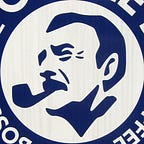Nerd Processor
Stan Lee’s Other Legacy
The comic book legend’s work didn’t just shape pop culture. It changed lives, too.
 When Stan Lee passed away Monday, the world lost a pop culture titan — a man who revolutionized his medium, but whose personal life turned to tragedy even as the comics and characters he created turned into billion-dollar franchises. There are plenty of wonderful pieces this week covering Lee’s entire life and career, and how, for a few years in the 1960s, he was a creative genius — a man arguably as ground-breaking and brilliant and important to comics as the Beatles were to music. But his importance stretches far beyond that. For countless people over the last half-century — myself included — Lee’s legacy is personal.
When Stan Lee passed away Monday, the world lost a pop culture titan — a man who revolutionized his medium, but whose personal life turned to tragedy even as the comics and characters he created turned into billion-dollar franchises. There are plenty of wonderful pieces this week covering Lee’s entire life and career, and how, for a few years in the 1960s, he was a creative genius — a man arguably as ground-breaking and brilliant and important to comics as the Beatles were to music. But his importance stretches far beyond that. For countless people over the last half-century — myself included — Lee’s legacy is personal.
To truly understand Lee’s influence, you have to understand his work, and in output alone, it’s astonishing. I mean, my god. From 1960 through 1969, he created (with luminary artists like Jack Kirby and Steve Ditko): Spider-Man, Iron Man, The Incredible Hulk, Thor, Black Panther, the Avengers, The X-Men, Guardians of the Galaxy’s Groot, The Fantastic Four, Daredevil, Black Widow, Ant-Man, Doctor Strange, Hawkeye, S.H.I.E.L.D., The Inhumans, and many, many more, including these characters’ equally varied, often-just-as-popular villains, and their rich supporting casts. This is incredible, as is the variety of characters Lee helped originate; there wasn’t as much diversity, although Black Panther was the first mainstream black superhero, and a major star in the Avengers comics. These heroes were hits among the young comic book audience of the 1960s; more impressively, their popularity has endured for decades, persevering until superheroes came to conquer the entertainment world.
Part of Lee’s genius was in humanizing his superheroes. Prior to the debut of “Fantastic Four #1” in 1961, most superheroes, like Batman and Superman, were in a state of arrested development, trapped as noble, perfect, super-powered paragons, so unremoved from reality that they lived in made up cities like Metropolis and Gotham. But Lee’s heroes lived in the real world (almost always New York City, specifically), and they had problems — real problems, not just evil villains to defeat. Peter Parker fought evil as Spider-Man, but as himself, he was a nerd…
